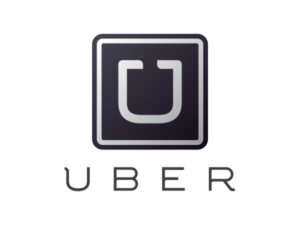
CAB COMPANIES LAUNCH INSURANCE CHALLENGE IN UBER WAR
BY DARA KAM
THE NEWS SERVICE OF FLORIDA
Taxicab companies in Broward County and Tallahassee filed their second lawsuit against the state in as many days, this time accusing app-based transportation services like Uber and Lyft of operating without proper insurance in Florida.
The cab companies alleged in a lawsuit filed Wednesday that the Florida Department of Highway Safety and Motor Vehicles is allowing drivers for the transportation services — the taxis’ main competitors in an increasingly fierce ride-sharing war — to operate without the kind of insurance required by law for commercial drivers.
The type of insurance that Uber provides for its drivers, who own or lease their cars, does not meet the requirements of for-hire vehicles, the lawsuit alleges.
The insurance issue has been a major source of contention in the drawn-out battle in Florida and other states between cab companies and app-based ride-sharing services like Uber.
Lawmakers earlier this year grappled with proposals to impose a new layer of insurance on the technology companies in an effort to close a coverage “gap” between when a driver is notified about having a customer to pick up and the “on-call” time when the passenger gets in the vehicle. The proposals failed to pass.
Florida law requires that for-hire vehicles be covered by commercial coverage at all times, attorneys Steven Andrews, his son Ryan Andrews and Brian Finnerty wrote in the lawsuit filed in Tallahassee. The insurance case came a day after the same attorneys filed a lawsuit alleging that the state Department of Agriculture and Consumer Services isn’t requiring Uber and Lyft to prove that the way they calculate trip distances — and charges — is accurate. The department certifies taxicabs’ meters.
Drivers for Uber are covered by a policy from James River Insurance Company when they are on-the-clock for the technology-based ride share service. But they are typically covered by minimum no-fault insurance coverage for personal drivers in their off-time, something not envisioned by state law, the attorneys allege.
“As applied to Uber and its drivers, the James River policy doesn’t insure either the Uber driver or the vehicle when the driver is not connected to the Uber application. Thus, the James River policy acts to insure only Uber related activities, which (a section of Florida law) does not permit even with the most strained reading of the statute,” wrote the lawyers, who represent B & L Service and Capital Transportation, cab companies based in Broward County and Tallahassee.
Ryan Andrews said his client, B & L Service, pays $2.2 million a year to insure its drivers, compared to Uber’s $1 million insurance costs.
“Our problem is we want the state to level the playing field and enforce the same laws against Uber that they enforce against taxicab companies,” Andrews said. “Florida law is hinged on making sure the car you’re driving has the proper insurance. And if you’re driving an Uber car, it’s our belief that you don’t.”
Cab companies and their drivers have managed to keep Uber-friendly legislation off the books — at least for now.
As in previous years, the Legislature this spring failed to pass bills addressing the app-based transportation network companies, called TNCs.
That may change in the future, however. House Rules Chairman Ritch Workman, R-Melbourne, works as an Uber driver while in Tallahassee, raising questions about whether his chamber might be view Uber-friendly legislation in a more positive light in the future.



